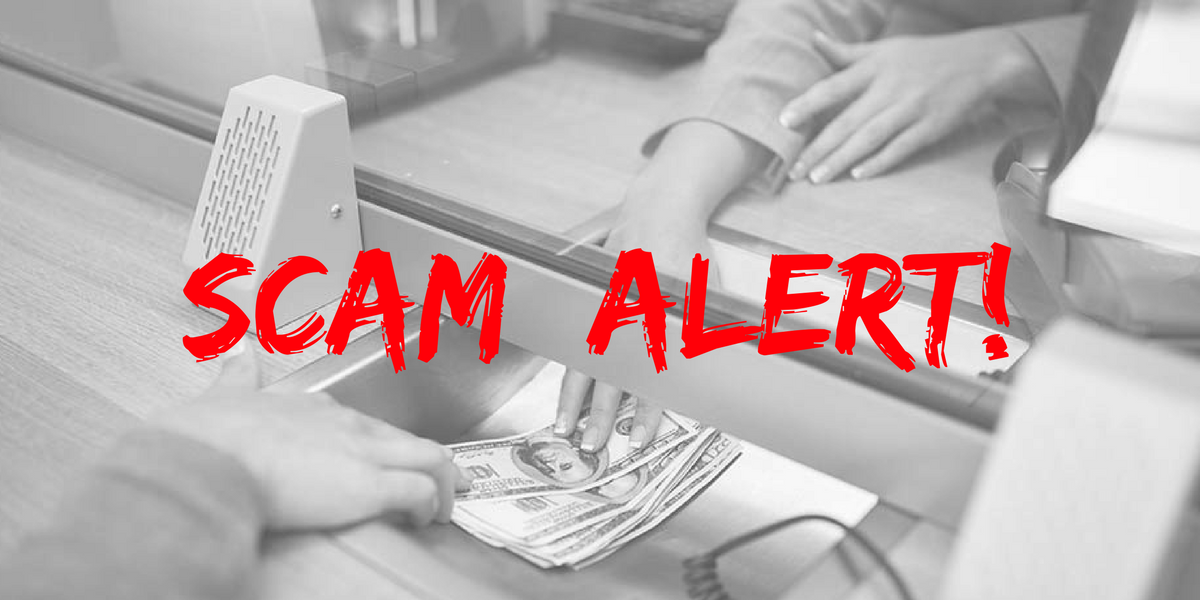Not Accepting This $6,000 Check Saved My Bank Account

If it seems too good to be true, it probably is. That simple life lesson saved me a whole lot of headaches when a $6,000 check was mailed to my house in an unmarked envelope last week.
The check was written out to my name, and came with a letter claiming I won a promotional contest. The address on the check was the name and location of a company in California. After a quick Google search, the company name and address checked out. The check even had a watermark.
The letter stated the amount won was $5,000, but this $6,000 check was mailed as a courtesy to reimburse me for any “taxes and fees” associated with claiming my prize money.
Yeah, right. There is always a catch. (Trust me, I’m from New Jersey.)
Fake checks are one of the oldest -and most common- instruments of fraud in the United States. Thanks to modern technology, the checks look authentic enough to fool bank tellers. They come in a variety of forms, including: cashier’s checks, money orders, business checks, and personal checks.
Here’s how it usually works. Scammers come up with a detailed excuse to send you the check. They’ll claim you won a lottery, or showed previous interest in an auction or listing for a car. Some scammers might pose as a prospective buyer for an item you are currently trying to rent or sell.
The amount of the check is always more than the value of the prize or payment. In my case, the scammers told me the excess money was meant to reimburse me for taxes and fees. Other scammers may pretend to pay too much by mistake, and suggest you wire them back the difference.
Fake check scammers expect victims to deposit the check and wire the difference over immediately. This way, the money is already in their hands by the time the bank realizes the check is fake. Once the money is wired over, it is gone forever. You cannot get it back.
It’s important to remember that bank account funds can become available before a check technically clears. Just because you can withdraw the money, does NOT mean the check is legitimate. Sometimes, it can take weeks for a bank to discover a check is fake.
The Federal Trade Commission compiled a list of “red flags” to help consumers avoid fake check scams:
- Throw away any offer that asks you to pay for a prize or a gift. If it’s free or a gift, you shouldn’t have to pay for it. Free is free.
- Resist the urge to enter foreign lotteries. It’s illegal to play a foreign lottery through the mail or the telephone, and most foreign lottery solicitations are phony.
- Know who you’re dealing with, and never wire money to strangers.
- If you’re selling something, don’t accept a check for more than the selling price, no matter how tempting the offer or how convincing the story. Ask the buyer to write the check for the correct amount. If the buyer refuses to send the correct amount, return the check. Don’t send the merchandise.
- If you accept payment by check, ask for a check drawn on a local bank, or a bank with a local branch. That way, you can make a personal visit to make sure the check is valid. If that’s not possible, call the bank where the check was purchased, and ask if it is valid. Get the bank’s phone number from directory assistance or an Internet site that you know and trust, not from the check or from the person who gave you the check.
- If the buyer insists that you wire back funds, end the transaction immediately. Legitimate buyers don’t pressure you to send money by wire transfer services. In addition, you have little recourse if there’s a problem with a wire transaction.
- Resist any pressure to “act now.” If the buyer’s offer is good now, it should be good after the check clears.
The fake check I received was a business check, with a real business name and address posted in the top left corner, and a real-looking routing number. Since the company addressed on my fake check was real, I decided to give them a call. Unfortunately, the company had no idea their name and address were involved in a scam.
Let my close encounter with a fake check serve as a reminder to us all: If it seems too good to be true, it almost always is. Never wire money to someone you don’t know.
Bodnar Financial clients: If you receive an unexpected or suspicious looking check in the mail, contact our office. We can help you verify the check, and report it to the authorities if needed.


